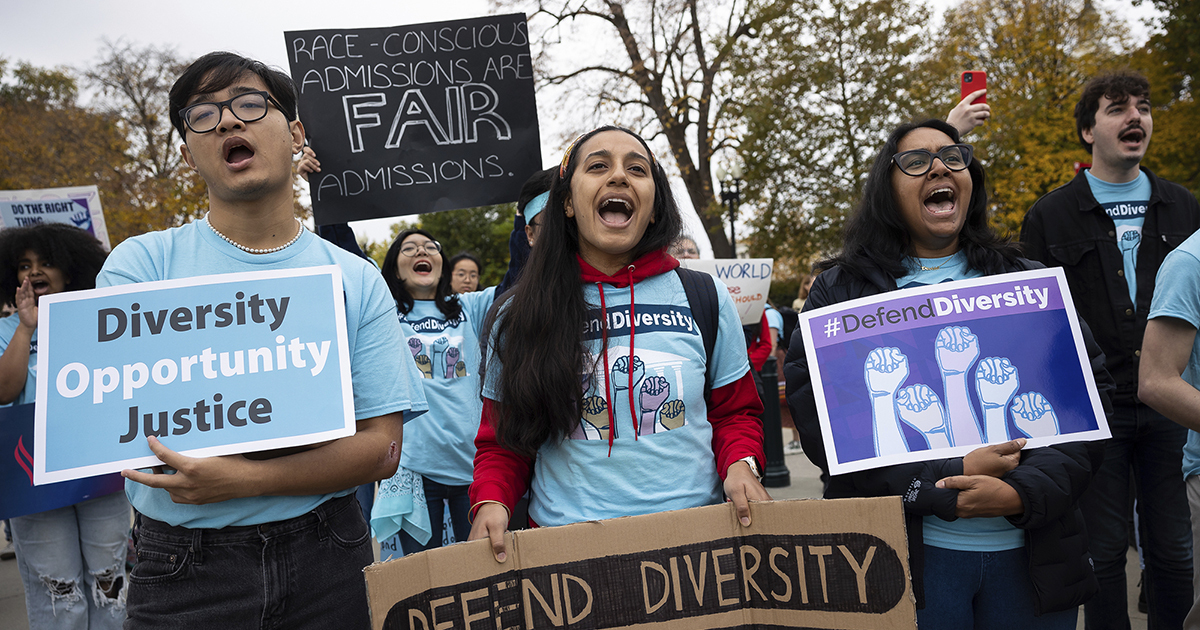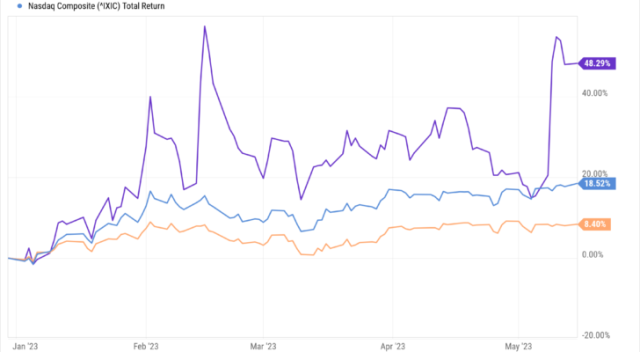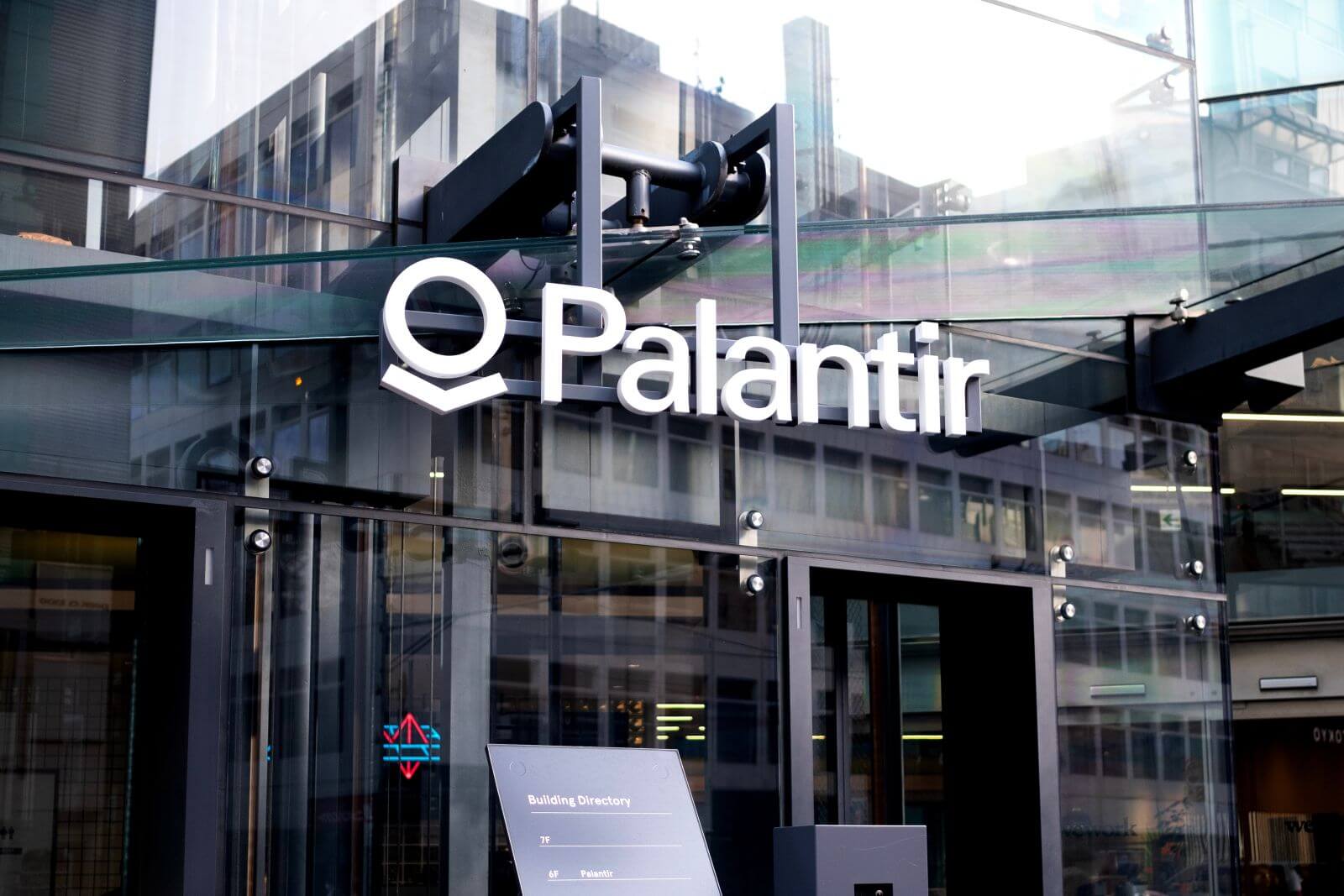Harvard's Affirmative Action Case: A Defining Moment For Higher Education

Table of Contents
The Supreme Court's Ruling and its Rationale
The Supreme Court's June 2023 decision effectively ended the consideration of race as a factor in college admissions. The court ruled that Harvard's admissions program violated the Equal Protection Clause of the Fourteenth Amendment, finding that its consideration of race, even in a holistic review process, constituted unlawful discrimination. The majority opinion emphasized the need for a colorblind approach to college admissions, arguing that race-conscious policies, even those aiming to promote diversity, are inherently discriminatory.
- Key arguments presented by both sides: Students for Fair Admissions (SFFA) argued that Harvard's admissions policy discriminated against Asian American applicants, while Harvard maintained that its holistic review considered a multitude of factors to create a diverse student body, enriching the educational experience for all.
- Specific aspects of Harvard's admissions policy that were challenged: The SFFA challenged the weighting of race in Harvard's holistic review, arguing that it penalized qualified applicants based solely on their race. The consideration of race alongside other factors was central to the court's decision.
- Impact of the decision on other universities with similar policies: The ruling has immediate implications for other universities employing similar affirmative action policies, potentially leading to legal challenges and significant changes in their admissions processes. Many institutions are now scrambling to redefine their approach to diversity in higher education.
- The dissenting opinions and their significance: Dissenting justices argued that the majority opinion ignores the persistent effects of historical and systemic racism and that a colorblind approach is insufficient to address the deep-seated inequalities within the higher education system. These dissenting voices highlight the ongoing debate about the role of affirmative action in achieving a more equitable society.
Impact on College Admissions and Diversity
The Supreme Court's ruling will undoubtedly reshape college admissions processes. The immediate impact will be the elimination of race as a direct factor in admissions decisions at many institutions. However, the long-term effects on diversity are still uncertain.
- Expected changes in application processes and evaluation criteria: Universities are now exploring alternative methods to promote diversity, focusing on socioeconomic factors, geographic representation, and unique talents. The emphasis on holistic review remains, but the definition of "holistic" is being reevaluated in light of the ruling.
- Potential decrease in minority student enrollment at elite universities: The elimination of explicit affirmative action may lead to a decline in minority student representation at selective colleges and universities, potentially exacerbating existing inequalities in higher education access.
- Strategies universities might adopt to maintain diversity without explicit affirmative action: Universities may focus on expanding outreach programs to underrepresented communities, increasing financial aid opportunities, and creating more inclusive campus environments. They may also emphasize legacy admissions reform and socioeconomic considerations more explicitly.
- The role of holistic review in future admissions decisions: While holistic review will likely remain a feature of college admissions, its application will be scrutinized more closely to ensure compliance with the Supreme Court’s decision. The definition and implementation of holistic review will be critically redefined across higher education.
The Broader Debate on Merit and Equality
The Harvard case reignited the long-standing debate about merit and equality in higher education. The ruling highlights the tension between achieving a diverse student body and upholding the principle of equal opportunity.
- Arguments for and against affirmative action: Proponents argue affirmative action is necessary to address historical injustices and promote social mobility, while opponents argue it is inherently unfair and discriminatory. The effectiveness and drawbacks of affirmative action continue to be debated extensively within higher education and across society.
- The ethical implications of considering race in admissions decisions: The ethical debate surrounding the consideration of race in college admissions remains contentious, with arguments focusing on the principles of fairness, justice, and the potential for unintended consequences.
- The importance of considering socioeconomic factors in college admissions: Many now advocate for increased focus on socioeconomic factors in admissions, arguing that it is a more effective way to promote social mobility and increase diversity on college campuses. This shifts the focus from race to class as a primary factor for addressing inequality.
- Alternative approaches to achieving diversity and inclusion in higher education: The search for alternative approaches to promote diversity without explicit racial preferences is ongoing. These include increased financial aid for low-income students, expanded access to quality K-12 education, and enhanced outreach and support programs.
Long-Term Implications for Higher Education
The long-term consequences of the Supreme Court's decision are far-reaching and uncertain. The ruling is likely to spark further legal challenges, legislative responses, and continued debate on the future of affirmative action.
- Potential changes in state laws regarding affirmative action: States may enact legislation to address the implications of the ruling, potentially leading to a patchwork of different policies across the country.
- The role of private universities versus public institutions: The impact on private universities may differ from that on public institutions, due to varying legal frameworks and institutional missions.
- The need for increased investment in K-12 education to improve equity: Addressing systemic inequalities requires a multi-faceted approach, including significant improvements in K-12 education to ensure that all students have equal opportunities to succeed.
- The ongoing conversation on the future of affirmative action and diversity initiatives: The debate about affirmative action and diversity in higher education is far from over. The search for equitable and inclusive admissions practices will continue to be a central focus.
Conclusion
The Supreme Court's decision on Harvard's affirmative action policy is a watershed moment, profoundly impacting college admissions and sparking a renewed national conversation about equality and opportunity in higher education. The ruling's long-term effects remain unclear, yet it necessitates a reevaluation of admissions processes and a sustained commitment to ensuring diverse and inclusive campuses. The elimination of explicit affirmative action does not eliminate the need for addressing historical inequalities.
The Harvard affirmative action case underscores the ongoing need for thoughtful discussion and innovative approaches to ensure equitable access to higher education. We must continue the conversation about how to achieve diversity and inclusion without violating constitutional rights while still promoting equal opportunity. Let's continue to engage in constructive dialogue surrounding affirmative action and its future, exploring alternative pathways towards a more just and equitable higher education system for all.

Featured Posts
-
 Dominique Carlach Et Sa Carte Blanche Parcours Et Influences
Apr 23, 2025
Dominique Carlach Et Sa Carte Blanche Parcours Et Influences
Apr 23, 2025 -
 Vehicle Subsystem Issue Causes Blue Origin Launch Cancellation
Apr 23, 2025
Vehicle Subsystem Issue Causes Blue Origin Launch Cancellation
Apr 23, 2025 -
 Ser Aldhhb Alywm Balsaght Bed Alankhfad Alakhyr
Apr 23, 2025
Ser Aldhhb Alywm Balsaght Bed Alankhfad Alakhyr
Apr 23, 2025 -
 Stock Market Valuation Concerns Bof A Offers Reassurance To Investors
Apr 23, 2025
Stock Market Valuation Concerns Bof A Offers Reassurance To Investors
Apr 23, 2025 -
 Michael Lorenzen Contract Team History And Trade Analysis
Apr 23, 2025
Michael Lorenzen Contract Team History And Trade Analysis
Apr 23, 2025
Latest Posts
-
 Palantir Stock A Comprehensive Look Before The May 5th Earnings
May 10, 2025
Palantir Stock A Comprehensive Look Before The May 5th Earnings
May 10, 2025 -
 Analyzing Palantir Stock Before The May 5th Earnings Announcement
May 10, 2025
Analyzing Palantir Stock Before The May 5th Earnings Announcement
May 10, 2025 -
 Palantir Technology Stock Buy Before May 5th Wall Streets View
May 10, 2025
Palantir Technology Stock Buy Before May 5th Wall Streets View
May 10, 2025 -
 Palantir Stock Evaluating The Investment Opportunity Before May 5th
May 10, 2025
Palantir Stock Evaluating The Investment Opportunity Before May 5th
May 10, 2025 -
 Market Rally Analyzing The 1 400 Point Sensex And 23 800 Nifty 50 Gains
May 10, 2025
Market Rally Analyzing The 1 400 Point Sensex And 23 800 Nifty 50 Gains
May 10, 2025
